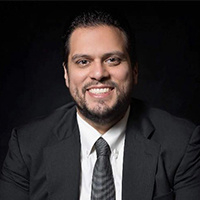Negreet Felony Lawyer, Louisiana
Sponsored Law Firm
-
 x
x

Click For More Info:
-
Babcock Trial Lawyers
10101 Siegen Ln #3-C Baton Rouge, LA 70810» view mapCriminal Defense We Want Your Injury Claim PAID NOW!
At Babcock Trial Lawyers, we work for our clients, maintaining our reputation of excellence as criminal defense & personal injury lawyers in Baton Rouge.
225-500-5000
Not enough matches for Negreet Felony lawyer.
Below are all Negreet Criminal lawyers.
Wesley Ryan Bailey
✓ VERIFIEDDivorce & Family Law, DUI-DWI, Real Estate, Wills & Probate, Adoption
Wesley Bailey is a practicing lawyer in the state of Louisiana specializing in Divorce & Family Law. More about Wes Bailey: Managing Attorney for so... (more)
Elvin C Fontenot
Wills & Probate, Divorce & Family Law, Criminal, Bankruptcy
Status: In Good Standing
Keenan Kirk Kelly
Criminal, Personal Injury, Accident & Injury
Status: In Good Standing Licensed: 31 Years
 Stephen Babcock Baton Rouge, LA
Stephen Babcock Baton Rouge, LA Practice AreasExpertise
Practice AreasExpertise

